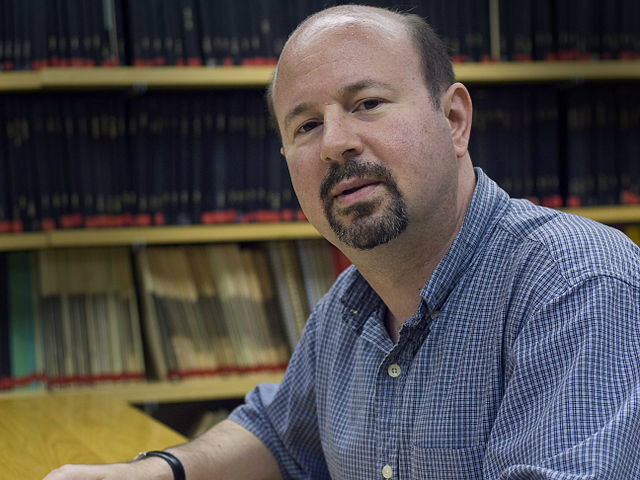In a moment of supreme irony, Michael Mann, the climatologist who constructed the now debunked hockey stick graph designed to make the case for global warming, has today delivered a lecture on “professional ethics for climate scientists”, Watts Up With That has reported.
Mann took to the stage alongside colleague Kent Peacock to “suggest that ethical training could be regularly incorporated into graduate curricula in fields such as climate science and geology,” at the American Geophysical Union’s Fall Meeting, currently taking place in San Francisco.
According to the lecture’s blurb on the AGU’s website, this is necessary as “several authors have warned that climate scientists sometimes exhibit a tendency to “err on the side of least drama” in reporting the risks associated with fossil fuel emissions.
“Scientists are often reluctant to comment on the implications of their work for public policy, despite the fact that because of their expertise they may be among those best placed to make recommendations about such matters as mitigation and preparedness.
“Scientists often have little or no training in ethics or philosophy, and consequently they may feel that they lack clear guidelines for balancing the imperative to avoid error against the need to speak out when it may be ethically required to do so.”
This argument has been made previously, most notably by climatologist Stephen Schneider in 1989, who, in an interview with Discover magazine, said “On the one hand, as scientists we are ethically bound to the scientific method, in effect promising to tell the truth, the whole truth, and nothing but–which means that we must include all the doubts, the caveats, the ifs, ands, and buts.
“On the other hand, we are not just scientists but human beings as well. And like most people we’d like to see the world a better place, which in this context translates into our working to reduce the risk of potentially disastrous climatic change.
“To do that we need to get some broadbased support, to capture the public’s imagination. That, of course, entails getting loads of media coverage. So we have to offer up scary scenarios, make simplified, dramatic statements, and make little mention of any doubts we might have. This ‘double ethical bind’ we frequently find ourselves in cannot be solved by any formula.
“Each of us has to decide what the right balance is between being effective and being honest. I hope that means being both.”
More recently, much the same argument was made by two Chinese economists, Fuhai Hong and Xiaojian Zhao, in a paper entitled Information Manipulation and Climate Agreements published by the American Journal of Agricultural Economics in February of this year.
They noted that “It appears that news media and some pro-environmental organizations have the tendency to accentuate or even exaggerate the damage caused by climate change.” However, they found that “the information manipulation has an instrumental value, as it ex post induces more countries to participate in an IEA (International Environmental Agreement), which will eventually enhance global welfare.”
In other words, climate change ethics stipulates that it’s ok to exaggerate and perhaps even lie, as long as you’re doing so to protect the planet.

COMMENTS
Please let us know if you're having issues with commenting.